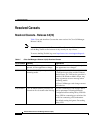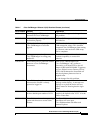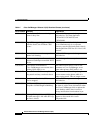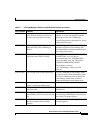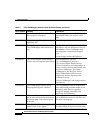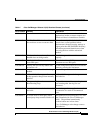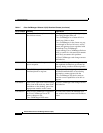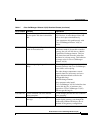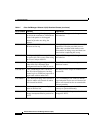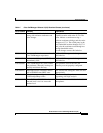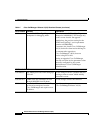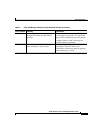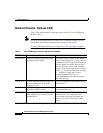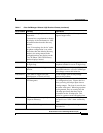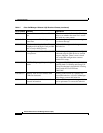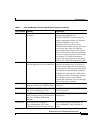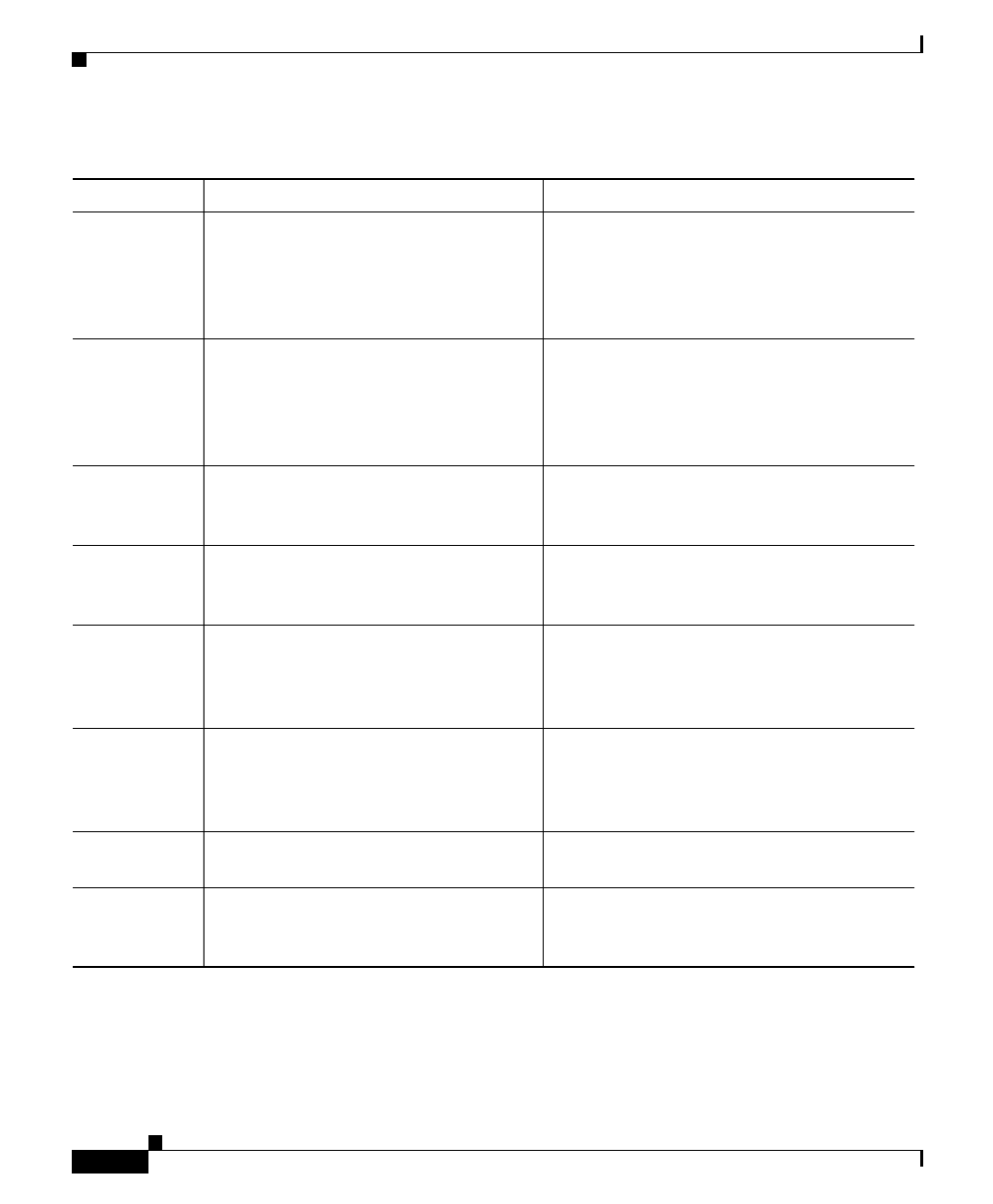
Resolved Caveats
28
Release Notes for Cisco CallManager Release 3.0(10)
78-13493-02
CSCdu04286 After conferencing, if only two parties
are left in the conference, TAPI redirect
causes both parties to be dropped
instead of just the one doing the
redirect.
A Cisco CallManager code change corrects
this behavior.
CSCdu05420 Locations bandwidth takes more than
20 hours to free up.
Although this problem could not be exactly
reproduced, from the provided trace we
gather that a problem with media occurs
when media are being set up and then torn
down before completing the set up.
CSCdu05485 Sending out 3.1 kHz causes problems
for some calls. This occurs when using
the Cisco Catalyst 6000 E1.
A Cisco CallManager code change corrects
this behavior.
CSCdu06291 Cisco IP phone accepts only one default
router from Unix Dynamic Host
configuration Protocol (DHCP) server.
Cisco IP Phone 7960 now accepts
additional routers.
CSCdu07051 Cisco CallManager users can have a
user ID with an underscore, but they
cannot log in to CCMUser page with a
login name with an underscore.
The software now accepts an underscore in
the user ID.
CSCdu08613 Cisco uOne port hangs after transfer to
a device where call forward all and/or
call forward back fails.
Cisco CallManager now sends an onhook
signal when the device uses call forward all
and/or call forward back to an unreachable
directory number.
CSCdu09807 H.323 endpoint always uses display
name of the first line.
A code change allows for the H.323
gateway to operate differently.
CSCdu09917 A need exists for a user to be able to
change AnonymousDevice protocol to
H.225.
The AnonymousDevice protocol can be
changed to H.225.
Table 2 Cisco CallManager Release 3.0(10) Resolved Caveats (continued)
DDTS Number Summary Explanation



